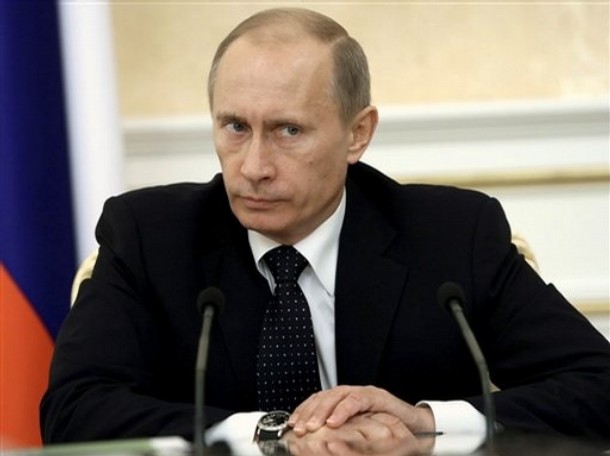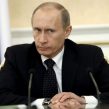
Putin Opts for a Large Deficit and Small Investment 2010 Budget
Publication: Eurasia Daily Monitor Volume: 6 Issue: 148
By:

Prime Minister Vladimir Putin made his cabinet agree on a budget for 2010 that contains few anti-crisis ideas and hardly fits into the directives on stimulating innovations issued by President Dmitry Medvedev. As such, this budget proposal, which will be duly approved by the compliant State Duma in September, is not necessarily a final executive order; for that matter, the 2009 budget as executed now bears little resemblance to the document signed and sealed last fall. Nevertheless, the budget that is finalized now has significance beyond the usual appointment of winners among interest groups. Evgeny Gontmakher, an influential and controversial economist, argued a few months back that the decision on priorities in this budget might decide Russia’s fate in no smaller measure than the coup in August 1991 or the financial collapse in August 1998 (Vedomosti, April 22).
Every budget in Putin’s "era" contained a 20-25 percent increase of expenditures from the previous year, and the political decision on the 2009 budget was to increase spending still further despite a 35 percent drop in income. That created a deficit that by the latest estimate could reach 9.3 percent of the GDP (RIA-Novosti, July 30). It was clearly impossible to continue the spending spree, so the expenditures in the new budget are "frozen" at the current level, which still makes them some 50 percent higher than the level of income. Consequently, the deficit is planned at the level of 7.5 percent of GDP, which according to Putin is the limit beyond which macro-economic stability could be affected (Kommersant, RBC Daily, July 31). This stability is assured by the "moderately-optimistic" scenario of 1 percent growth in 2010, 2.6 percent in 2011 and 3.8 percent in 2012; these figures are taken as basic guidelines, while the "conservative" scenario predicted zero growth in 2010 and weaker recovery afterwards (Vedomosti, July 13).
The new budget therefore demanded clearer priorities than just small flat cuts in every department and the structure of expenditures proves two propositions about Putin’s policy: that he is afraid of the growing discontent within the country and that he has no ideas on revitalizing the economy. Much spin is put on the social orientation of the budget, but where Gontmakher insisted on investing in the quality of human capital while channelling funds into education and health care, Putin has opted for various direct payments, including a 50 percent increase in pensions, aiming at disarming "irresponsible" protesters (Nezavisimaya Gazeta, July 22). It might appear that only cold-hearted economists could argue against helping impoverished pensioners, but in fact the costs of populist measures are very high as investments in infrastructure that create employment and build a foundation for post-crisis modernization are mercilessly cut (www.gazeta.ru, July 29).
One possible way to improve the parameters of the budget was to increase taxation on the gas monopoly Gazprom, but the half-hearted proposal from the Finance Minister Aleksei Kudrin was firmly overruled by Putin after a meeting with Gazprom’s CEO Aleksei Miller (www.newsru.com, July 30). This special attention will not only push the budget deeper into the red, it will also necessitate a further 25 percent devaluation of the ruble even if oil prices remain above $60 per barrel and that will keep inflation in the mid-teens (Nezavisimaya Gazeta, July 30). The main source of covering the deficit is the accumulated financial reserves that currently amount to $400 billion. That, however, will not be enough and Kudrin has acknowledged the need to resort to external borrowing that in 2010 could be limited to $18 billion and reach $60 billion by 2012 (www.lenta.ru, July 28). These figures are quite moderate in themselves and the external debt reaching 15-17 percent of GDP is not a heavy burden, but there is also corporate debt, which Kudrin estimates as exceeding $400 billion (RIA-Novosti, July 31). Much of that debt is covered by state guarantees and they are in fact expanding as the government is indirectly involved in negotiations on restructuring loans that have brought such "champions" as aluminum giant Rusal to the brink of bankruptcy.
Entering again into the money market Russia would have to think hard about its credit ratings and reputation – and that implies certain changes in its foreign policy behavior. Indeed, the ability to pay off the external debt was one of the main sources of Putin’s confidence in Russia’s rising power and his arrogant challenging of Western interests was in no small measure based on the assumption that Russia was free of this humiliating dependency. Now it is necessary once again to bargain with uncharitable international financial institutions, so Moscow would have to contemplate financial consequences every time it feels tempted to offend potential creditors. It might appear that the high level of defense expenditures preserved in the 2010 budget contradicts this as yet barely visible trend towards a more humble foreign policy. However, the deep cuts in the officer corps envisaged by the Defense Minister Anatoly Serdyukov’s reform plan are very costly, and such long-standing programs such as the new submarine missile Bulava and the satellite navigation system GLONASS bedeviled by setbacks, must be brought to fruition – again at a very high cost (Nezavisimoe voennoe obozrenie, July 31).
Putin’s economic policy, of which the new budget is just one manifestation, is increasingly disappointing for many economists, who argue that if a right measure is taken with a six to nine month delay, it becomes a wrong measure in the context of the deepening recession (www.newsru.com, July 27). The main source of these delays and half-measures is the dilemma that Putin is facing: either to dismantle his system of rigid state control over key economic activities or to focus on rescuing it and condemn Russia to protracted stagnation. He tries to postpone this choice by experimenting with "manual management" of local problems and harvesting PR dividends, but he can hardly fail to see that his orders cannot make credit flow from the banks clogged by bad loans or generate demand for antiquated cars produced by Avtovaz. Nothing in the budget suggests that Putin has recognized the imperative of scrapping his model of "command petro-economy," and that most likely means that long hours of reconciling intake and disbursement were wasted because someone else would have to take responsibility.




